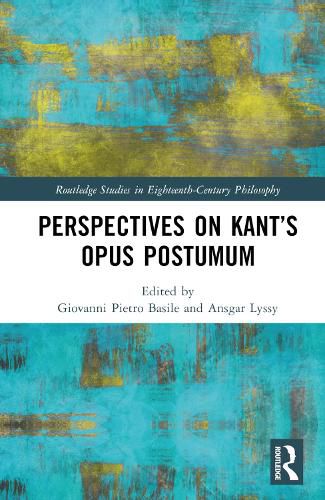Readings Newsletter
Become a Readings Member to make your shopping experience even easier.
Sign in or sign up for free!
You’re not far away from qualifying for FREE standard shipping within Australia
You’ve qualified for FREE standard shipping within Australia
The cart is loading…






This book offers new perspectives on the theoretical elements of the Opus postumum, Kant’s project of a final work which remained unknown until eighty years after his death. The contributors read the OP as a central work in establishing the relation between Kant’s transcendental philosophy, his natural philosophy, practical philosophy, philosophy of religion, metaphysics, and his broader epistemology.
Interpreting the OP is an important task because it helps reveal how Kant himself tried to correct and develop his critical philosophy. It also sheds light on the foundational role of the three Critiques for other philosophical inquiries, as well as the unified philosophical system that Kant sought to establish. The chapters in this volume address a range of topics relevant to the epistemological and theoretical problems raised in the OP, including the transition from the Metaphysical Foundations of Natural Science to physics as an answer to a deficiency in critical thought; the notion of ether and, more specifically, its transcendental deduction; self-affection and the self-positing of the subject; and the idea of God and the system of ideas in the highest standpoint of transcendental philosophy.
Perspectives on Kant’s Opus postumum will be of interest to upper-level students and scholars working on Kant.
$9.00 standard shipping within Australia
FREE standard shipping within Australia for orders over $100.00
Express & International shipping calculated at checkout
This book offers new perspectives on the theoretical elements of the Opus postumum, Kant’s project of a final work which remained unknown until eighty years after his death. The contributors read the OP as a central work in establishing the relation between Kant’s transcendental philosophy, his natural philosophy, practical philosophy, philosophy of religion, metaphysics, and his broader epistemology.
Interpreting the OP is an important task because it helps reveal how Kant himself tried to correct and develop his critical philosophy. It also sheds light on the foundational role of the three Critiques for other philosophical inquiries, as well as the unified philosophical system that Kant sought to establish. The chapters in this volume address a range of topics relevant to the epistemological and theoretical problems raised in the OP, including the transition from the Metaphysical Foundations of Natural Science to physics as an answer to a deficiency in critical thought; the notion of ether and, more specifically, its transcendental deduction; self-affection and the self-positing of the subject; and the idea of God and the system of ideas in the highest standpoint of transcendental philosophy.
Perspectives on Kant’s Opus postumum will be of interest to upper-level students and scholars working on Kant.